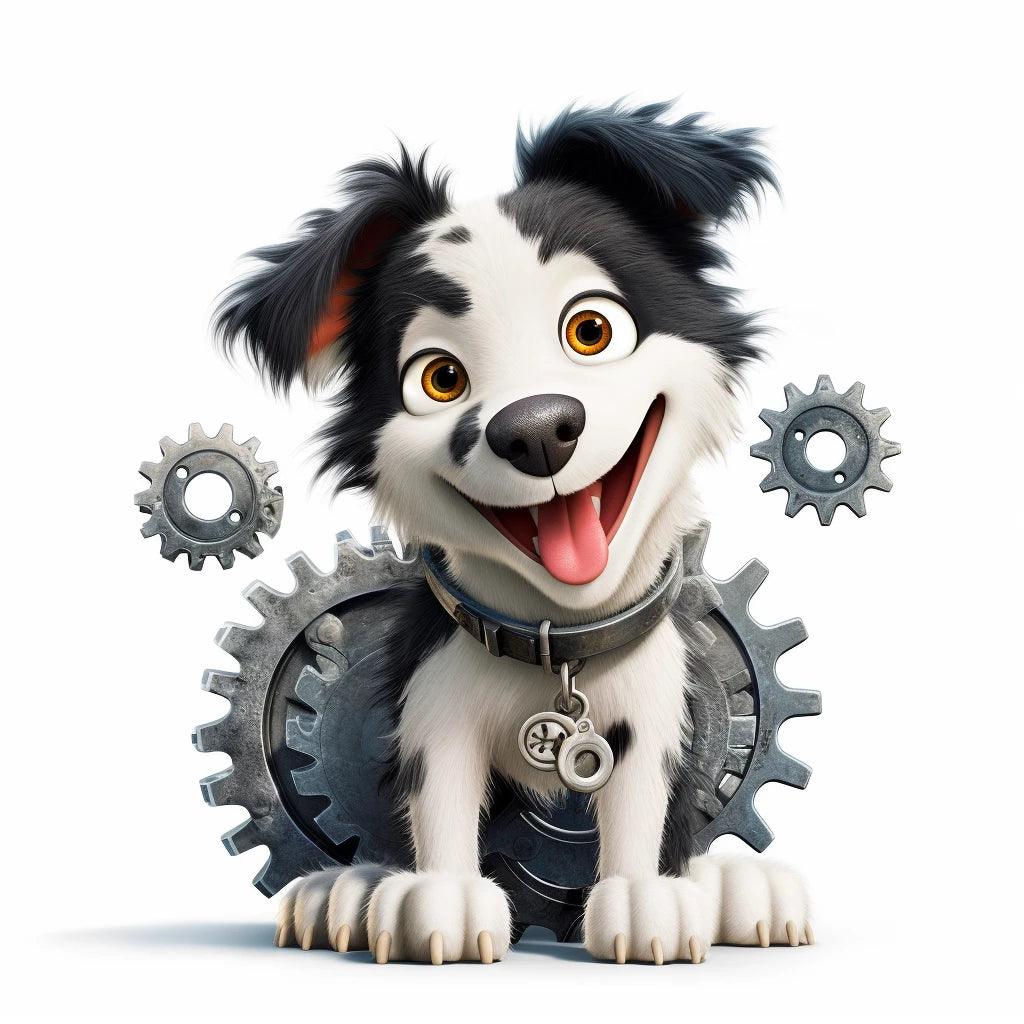
How do I know if my dog is stressed!?!
Share
Dogs are social and affectionate animals that can become loyal companions for humans. However, it is important to remember that like humans, dogs can also experience stress. The causes of stress in dogs can be varied, from changes in the environment to physical or mental illnesses. It is therefore crucial to recognize the signs of stress in dogs so that you can help them feel better.
Causes of stress in dogs
-
Changes in the environment: Dogs are animals that like routine and their familiar surroundings. Changes in their environment, such as moving or the arrival of a new family member, can cause stress in dogs.
-
Lack of exercise or social interaction: Dogs need physical exercise and socialization to be happy and healthy. A lack of exercise or social interaction can cause agitation and frustration in dogs, leading to stress.
-
Physical or Mental Illnesses: Dogs can also suffer from physical or mental illnesses that can cause stress. For example, a chronic illness like arthritis can cause pain and discomfort, while a behavioral disorder like separation anxiety can cause emotional distress.
It is important to note that these causes of stress are not exhaustive and there may be other factors that can cause stress in dogs. It is therefore important to remain vigilant for signs of stress in your dog and to consult a veterinarian if you have any concerns.
How to recognize signs of stress in dogs
-
Physical Behaviors: Physical signs of stress in dogs can include excessive barking, excessive scratching, repetitive movements, shaking, rapid eye movements, and dilated pupils.
-
Emotional Behaviors: Emotional signs of stress in dogs can include agitation, fear, sadness, anxiety and apathy.
-
Social Behaviors: Social signs of stress in dogs can include isolation, aggression, fleeing, biting, growling and growling.
It is important to note that signs of stress can vary from dog to dog and may not all be present at once. It is therefore important to monitor your dog regularly and consult a veterinarian or dog behaviorist if you notice any unusual or concerning behaviors.
How to help a stressed dog?
-
Provide attention and affection: Dogs need to feel loved and appreciated. Spending time with your dog, petting him, and talking to him can help reduce stress.
-
Ensure a regular routine and exercise: Dogs love routine and exercise is important for maintaining good mental and physical health. Ensuring a regular routine for meals, walks and playtime can help reduce your dog's stress.
-
Consult a veterinarian or dog behaviorist: If you think your dog is stressed, it is important to consult a veterinarian to rule out any underlying illness. It is also important to consult a dog behaviorist who can help you understand the causes of your dog's stress and implement strategies to help him feel better.
It is important to note that stress can cause mental and physical health problems in dogs, and so it is crucial to take this seriously and take steps to help your dog. In close collaboration with a veterinarian and a canine behaviorist, you will be able to find the best solutions for your dog.
In conclusion
Dogs are social and affectionate animals that can become loyal companions for humans. However, it is important to remember that like humans, dogs can also experience stress. The causes of stress in dogs can be varied, from changes in the environment to physical or mental illnesses. It is therefore crucial to recognize the signs of stress in dogs so that you can help them feel better. Signs of stress can be physical, emotional and social, so it's important to monitor your dog regularly and consult a veterinarian or dog behaviorist if you notice any unusual or concerning behaviors. There are ways to help stressed dogs, such as providing attention and affection, ensuring a regular routine and exercise, and consulting a veterinarian or dog behaviorist. Ultimately, it's crucial to take dog stress seriously and take steps to help your dog feel better.






